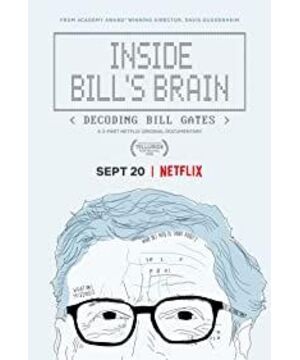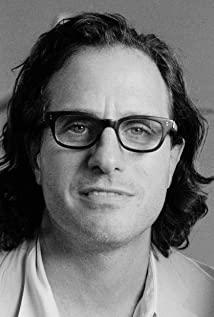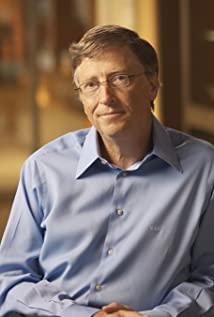The boulevards you long for are covered with dew every night and every morning. When you can easily enter, you should know that it is not that you are powerful, but that everyone has widened the way for you.
- Ward Keel
He is the founder of Microsoft and the richest man in the United States stamped by Forbes Magazine.
The media described him as "a juvenile genius with a very high IQ", "the greatest American businessman of our time", "arrogant, greedy, and the most outstanding person".
Brothers and sisters said he was a weird, nerdy guy who could lock himself in a house for ten hours straight reading. His room was a mess, with books everywhere, but he never felt like he was different.
He said that he was just an ordinary person. His favorite food was hamburgers, and his constant drink was Coke. Like us, he didn’t like breakfast and liked to bite the ends of pencils.
He is not a natural leader, on the contrary he is too introverted. His father was more of a role model, his mother pushing him out of the room and participating in various sports competitions at the resort.
In tennis tournaments, sack races, running races, obstacle courses, he learned to survive both competitively and cooperatively in groups, and he was hungry for victory and honor.
It was his mother's efforts that made him step out of his focus on learning and education, look at practice, and make him realize that it is important to be a person who contributes to the community, so he is different from all traditional den scholars - He is full of fighting spirit.
01 He is extremely smart, cherishes time as gold, and wants to know everything
He has endless curiosity and loves to learn. His curiosity spreads across literature, sociology, history, psychology, geography, biology, neuroscience... On a topic, he reads not one but five books.
Most of the books are very esoteric and cannot be read by ordinary people, but the more complicated things, the more exciting he is.
He reads extremely fast, 150 pages per hour, and understands very well, remembering 90 percent of it. The most amazing thing is that no matter what he talks about, he always knows more and is more incredible than the other party. People are afraid of poverty, disease, death... His biggest fear is that the brain stops working.
When he was quiet, all those extremely complex thoughts came to the fore: a unique way of looking at the world, a way of integrating thoughts that he could see that no one else could see, and that made him feel good.
He wants to keep his brain running at an incredibly high speed forever, by actively and prudently managing and allocating his attention. Time is that he can't buy more resources. Like us, there are only 24 hours a day. For this reason, he cherishes his time and never arrives late.
Since the 1990s, he has started an annual "Thinking Week", where he spends a week of reading and thinking alone in a log cabin every year, which he calls "CPU time." He absorbed numerous books and scientific papers to help him understand the future, make decisions, and move forward with plans.
He's a tech freak who thinks technology can solve everything. If he encounters any problem, he will consider whether it can be solved with technological innovation.
He knows this, he's good at it, and if you have a hammer, a lot of problems look like nails. So, that's how he deals with everything.
02 It is difficult for him to be indifferent to the suffering of the world
A piece of news that changed the direction of the Gates Foundation: "In the Third World, Water Is Still Deadly".
He was surprised to learn that children in developing countries could still suffer from malaria from sewage, which could cost them their lives.
To learn more, Bill went to read the World Development Report on the number and distribution of malaria deaths in the world—20 percent of children die before the age of five. In the world he lived in, he had never seen a child die of malaria.
He couldn't help but wonder, is the world doing anything to reduce this kind of death?
Thousands of influential people own this book but never even open it. Well, the report is not that interesting.
Bill happens to be one of the most influential people out there. Read and understood the book and decided after reading it, well, I'm going to take action.
He aspires to save millions of lives, what he really wants is for all children in the world to be treated equally, with the same right to life, to an education - he has children himself, so expects other children can also live with dignity.
To this end, he wrote a letter to the world's most prestigious university, asking if there was a way to build toilets in poor and backward areas to purify sewage. Although the sender was the world's richest man, there was still little response. Understandably, the world's best engineers and scientists often work for governments and corporations in developed countries.
When Bill went to his long-time scientist friend and asked him if he would like to solve the sanitation problem together, he was surprised: Because in his opinion, the sanitation problem has already been solved?
People ignore the everyday pains of life and the stories of improving living conditions. Because what happens every day is not news. In journalism, everyone wants to grab attention, report and address global health issues, and that's not enough.
But Bill had other ideas, and the Gates Foundation proposed a competition: Find ways to clean up contaminated drinking water around the world. Many bold approaches have been proposed, but it will take a decade for them to be implemented in developing countries, during which time thousands of people are still dying every day.
The most experienced experts on the subject have all said defiantly: in my opinion it is impossible.
Bill kept pushing, continuing to find ways around the world. In November 2018, one of the world's largest manufacturers, LIXIL Group, announced that it would build the toilet developed by Bill.
Today, Omni processors can treat one-third of the city's feces and sewage, providing citizens with clean drinking water.
03 He wants results, not just inspiration
Bill and his wife Melinda have established the world's largest foundation, spending $5 billion a year to invest in public education, women and family planning in the United States. They help HIV patients take antiviral drugs, vaccinate the poorest children, and for decades have dedicated themselves to eradicating polio — but they underestimated the magnitude of the problem.
The use of the Shaq vaccine in 1955 eliminated polio in developed countries.
Children in poor countries can still get this disease. It is highly contagious, and poor sanitation conditions lead to widespread infection. If living in a poor country, children are likely to be paralyzed, let alone participate in society.
Bill felt great pain when he saw paralyzed children and saw them die. But there are millions of children like that, but he can't make his sadness a thousandfold.
Bill said that emotional connection is always microscopic. Even if you really want to do something for it, you'd better think about it at a macro level. You need to zoom in 1 million times and see it 10 million times, which is more cost-effective.
Someone mocked him, which doesn't sound very inspiring!
That's a pity, he replied, my goal is not to inspire, the world's resources are limited, and I want to maximize utility.
Thanks to the efforts of the Gates Foundation, in the most densely populated India, a country that everyone said was impossible to solve, also achieved zero cases. In Nigeria, the number of children with polio has plummeted.
04 How important it is to make friends, they make you a better person
In 1991, Bill's mother said he should meet Warren Buffett, the most successful investor in the world.
Bill disapproved, excused himself, and at the insistence of his mother, he said, well, I'll go by helicopter, and in 90 minutes, I'll be back to write the program.
But as soon as the two sat down, the conversation continued for hours. Buffett asked him a lot of questions, such as why can't IBM beat Microsoft? What are the economics of Microsoft? How to spot smart people in our industry? How to price our products?
I've always wanted to meet someone who would ask these questions, but he was the first, Bill said. Buffett asked some good questions, and being able to ask good questions has always been a mark of recognition among smart people.
Bill has met only a handful of people in his life, and he thinks the same way, and Buffett is one of the most important ones.
Making friends is so important, and if they make you a better person, that's the best gift.
Warren even donated more than half of his accumulated wealth, $31 billion, to the Gates Foundation.
He said that once you accept the premise that everyone's life is of equal value, that guides you a lot, your money and your energy and the people you're attracted to and all kinds of things involved. .
We’ve also always had people around us who mattered as deeply as we thought, but with something different than what we’re good at.
It's these friends who keep asking "Why do you think this way? What makes you think this way?" when we take it for granted, forcing you to double-check your thought process.
It was these precious friends who saw through our hard shells this gentle and zealous man.
05 When he is depressed, he will say: let's speed up, let's solve the problem
He loves work, is very persistent, aggressive, works long hours, and his work is his whole life. One of his key strengths is his fanaticism, his never-give-up dedication, he'll give it his all, day and night, completely focused on writing good software.
He likes to frenzy, enjoy and revel in it. He doesn't believe in weekends, he doesn't believe in vacations - it's not an ideal work environment for many people: high stress and demanding - Bill demands not only of himself, but of others: "If you say a week Done, he'll say, I can do it in a day! Why don't you work as hard as I do?"
He loves adventure and will do the most extreme things. When he's down, he'll say, let's speed up, let's fix the problem - let's think, what's the difference between victory?
When faced with great setbacks, he tried to take a step back and try to be objective.
In 2013, in unstable regions under the brutal slaughter of terrorists, the eradication of polio was slow - because local people viewed outsiders with tinted glasses, which made it even more difficult to vaccinate. A roadside bomb killed a vaccination worker, a police officer protecting a polio worker was shot dead, a mother of eight was killed as she went door-to-door vaccinating...
Incredible things happened one by one, when people told Bill that it wasn't worth it and that efforts to eradicate polio were doomed to fail, and Bill still wasn't about to give up, no matter the cost.
'We decided to go a step further and roll out an endgame strategic plan,' he said. He and a consortium of agencies plan to spend $6 billion over six years to eradicate polio.
Every project of the foundation needs money, and when the richest man in the world is at a loss, he has no choice but to turn to Buffett.
Buffett asked, I like to measure things, so what is the probability of your success in eliminating polio?
"I'm putting the foundation's reputation at risk, so to speak, and we're going to do whatever is necessary, so I'm still optimistic," Bill said.
Buffett said, well, if that's what you're going to do, do it. Then he took out a large portion of his fortune and said to Bill, I'm counting on you, Bill, you're going to make this money work.
06 Sometimes, you have to say, I need to work harder
When Bill was young, he and his partner Kent read many stories of heroes. Should I go into politics? Am I going to be CEO? Am I going to be a soldier? Am I going to be an ambassador? Am I going to be a professor?
It was interesting to think that some people were so successful. He wondered, what knowledge did they have? what did they do? What drives their success? Why are there so few big companies in some industries? Some industries have many small companies?
His mother told him, "Everyone starts with a definition of success first, and with these specific expectations about ourselves, we are more likely to succeed. In the end, it's not about what you get. , not even in what you give, but in what you become."
You think the world should be like this, it should happen, then don't wait and hope that others will make this change happen, Be the change that you want to see in the world, you can actively contribute to this change.
Bill's grandmother taught him to play cards, and Bill found her odds of winning were very high. Her pattern of unwrapping is to know exactly which cards are removed. He learned from her that if you focus heavily on finding what you need, it will eventually pay off.
Looking back at Bill's path:
The toilet revolution to eliminate dysentery, promising but expensive;
The complete elimination of the highly contagious polio from the planet costs tens of billions of dollars, and cases have increased this year;
Terra Power, the deal with China fell through;
Nuclear energy research to solve climate problems has sought to build reactors in the United States, but with little hope.
We rightly wondered if there was a moment when a thought flashed through him: It was too hard. I want to do too much. I quit.
The director also asked this question, and he really asked Bill. Bill's answer is still so optimistic: sometimes you do have to say, let's give up! Sometimes, you have to say, I still need to work harder.
When faced with great difficulties, he always gave an answer repeatedly: work harder.
View more about Inside Bill's Brain: Decoding Bill Gates reviews









